Cemetery Without Crosses (1969)
Directed by: Robert Hossein
Written by: Claude Desailly, Robert Hossein
Starring: Daniella Vargas, Guido Lollobrigida, Michèle Mercier, Robert Hossein
ITALY
AKA CEMITERIO SEM CRUZES, THE ROPE AND THE COLT, UNE CORDE UN COLT
ON DUAL FORMAT BLU-RAY AND DVD: NOW, from ARROW VIDEO
RUNNING TIME: 90 min
REVIEWED BY: Dr Lenera, Official HCF Critic
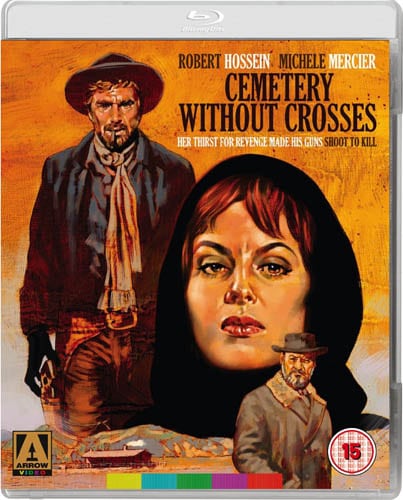
After she is forced to witness the execution of her husband by members of the Rogers family, Maria Caine vows to avenge his death. But her brothers-in-law, Eli and Thomas, both thieves who have clashed with the Rogers, a clan of villains, urge her to pack up her belongings and start a new life somewhere else. Determined to punish the killers of her husband, Maria heads to a nearby ghost town and meets Manuel, a lonely gunman who has decided to spend the rest of his life in peace and quiet, but eventually agrees to help. The first step in his plan is to get himself hired by the Rogers family….
Considering that it was made with a largely French crew and cast, perhaps Cemetery Without Crosses should be rights be called a Baguette Western than a Spaghetti Western, though it was actually released in Italy first and definitely belongs with the countless Westerns that came out of Italy in the wake of the tremendous success of Sergio Leone’s A Fistful Of Dollars, if also belonging to the small group of films of the genre which contain virtually no humour whatsoever. I enjoyed Day Of Anger, the previous Spaghetti Western that Arrow released in a stonking Blu-ray version, but in the end it’s very much an archetypal film of its type very similar to dozens of others. Cemetery Without Crosses is something else though, a very dark and very brooding revenge tale. It moves at a very slow pace and often chooses to cut away from acts of violence, but achieves quite a compelling atmosphere and contains some fantastic scenes of pure cinema when words become subordinate to image and sound which show director Robert Hossein to be clearly influenced by Leone but also adding some style of his own. There are times when the film seems to be stalling, but for the patient viewer the rewards are plentiful, though it’s probably not the first film to begin with if you’re new to this fascinating genre.
Hossein is better known as an actor, often cast in villainous roles after the international success of Rififi, though he also directed 17 films in various genres, many of them crime thrillers. Cemetery Without Crosses was made in Italy and Leone’s usual stomping ground of Almeria, Spain. Hossein made no secret of the fact that his film owed a great debt to Leone and the master himself shot one scene. The ghost town set was built on shifting sands and consequently was half destroyed already once shooting there had finished. Now Cemetery Without Crosses has much interest for Dario Argento fans too as his name is on the screenwriting credits of some versions [though not the French], though Hossein has said that this was simply due to finance and distribution, which still doesn’t make much sense to me as Argento hadn’t yet made his name. Argento did go on to work on two more Westerns and even directed one, so it’s possible he was involved in some capacity. It may be due to him that Manuel puts on a black glove every time he’s about to fire his gun. For some reason Italian prints of the film feature the opening and closing scenes in sepia, but all other prints seem to have them in black and white. Cemetery Without Crosses was better reviewed than many Spaghettis, but Hossein seems unsure whether it actually did well or not!
The opening titles are accompanied by what seems like a very typical Western theme song, but actually if you listen to the lyrics they’re very downbeat and sum up the film’s central themes of the cyclical nature of violence and the problems with revenge. Then we get a very intense hanging scene, the woman being forced to watch her husband being killed. The Leone influence is very apparent here as the scene seems to be slowed down and we get lots of close-ups of the man’s face, though it’s not quite as over the top. There is definitely a strong A Fistful Of Dollars influence though what with the mourning woman always dressed in black, several plot elements like Manuel getting himself hired by the villainous family he wants to destroy, and even some Christian symbolism. Robert Hossein’s ‘hero’, who seems to live in a ghost town, initially seems quite similar to The Man With No Name [I’ve never understood why the American distributors decided to call him that because he actually has a name in each three of the films] with his laconic look and style, but he’s actually rather wary of getting into violence, and that character wouldn’t seduce a woman, then let two men in to rape her while he calmly walks away outside!
Yes, the story and some of its details very harsh – this is no romanticised Western world like even Leone depicted but a truly cruel one in which the only way to get ahead is to be even crueller – and, while it all climaxes in the expected big showdown [which is a little disappointing], there’s a downbeat conclusion which certainly came as a surprise [and a pleasant one, because it meant that the film was totally having the courage of its convictions] to me even though several other Spaghettis at the end ended in similar fashion. Overall there isn’t as much action in Cemetery Without Crosses as you might expect, though the first gunfight has one unintentionally [I think] amusing moment where someone is shot and staggers towards Manuel before putting his hands on his shoulders and then slumping to the ground dead. His habit of putting money inside a piano with no lock whatsoever is also rather odd, but generally this is very serious stuff and shows how intelligent and uncompromising the Spaghetti Western could be. One especially strong moment occurs when Manuel and Maria hear Joanna screaming as she’s being sexually assaulted, an incident they’ve set up. Manuel glances to the totally emotionless Maris as if to say:”Look, this is what your revenge is bringing about, does it still seem like a good idea”?
The Leone-directed scene is a dinner table sequence which somehow seems to create a huge amount of tension from virtually nothing, the camera panning round and round the table while all we hear is the clunking of plates and cutlery, while every now and again the film really takes flight and erupts into virtuoso filmmaking with some entirely wordless sections where just the images and the score are used to tell the story, so much so that it’s almost like watching a silent film. Some of these moments are a little hard to follow, aided by Hossein’s reluctance to show much of his film’s sex and violence [including two rapes] which sometimes even caused me to be unsure of what had just happened, but he often creates considerable power from subtlety nonetheless, most notably when Maria lights a lamp and the camera then slowly pans around to reveal the group of bad guys who were waiting in the dark, before moving back to Maria and showing that a single tear is falling down her face, after which we cut to the next scene. Cinematographer Henri Persin does a great job throughout this movie, especially in scenes where dust blows is blowing around and when figures are in darkness, though he can’t quite make the obvious day for night shooting work!
I really like Hossein in the lead, but for me it’s the two female characters who make the strongest impact. Black Sabbath’s Michele Mercier is a really formidable presence as the would-be avenger who becomes really quite unsympathetic in a film where your sympathies almost end up with the villains at times, while Anne-Marie Balin, even though she never utters a word, also makes an impression as the tragic Joanna. Sadly this lovely actress only made one further film. The score for the film is by the director’s father Andre and is mostly guitar orientated if occasionally turning into full blown orchestral melodrama. There were portions of Cemetery Without Crosses which didn’t quite come off for me, while other sections could have done with elaboration [though that, of course, is just my preference], but this is definitely a strong Spaghetti Western, maybe not the most exciting of entries but full of style, very convincing [it actually has more of an American Western feel at times, but more Anthony Mann or Sam Pechinpah than John Ford or Howard Hawks] and even a bit melancholy, while also having much to say about its issues.
Rating: 









Arrow were obviously unable to locate the original negative of Cemetery Without Crosses, and had to source their print from a negative which is two generations away from it. This means that their Blu-ray isn’t quite as gorgeous looking as Day Of Anger, and the opening black and white scenes actually look a little rough and were obviously damaged, but after that things do considerably improve. Some scratches, pops and cases of two much grain in some areas and not enough in others do remain, but Arrow deserve credit for not trying to digitally polish things up [which usually results in a film looking artificial and too ‘modern’], and the print is still pretty good, with excellent detail on close-ups. Both Italian and English soundtracks have their strong and weak points though I wish Arrow had included the French track as many of the cast are French, as well as the Italian sepia opening, but the fact that this rare film is available on a decent Blu-ray at all is a cause for celebration. The disc comes with fewer special features than usual for Arrow, but the French TV reports are interesting to watch.
SPECIAL FEATURES
*Brand new 2K restoration of the film from original film elements
*High Definition Blu-ray (1080p) and Standard Definition DVD presentations
*Original Italian and English soundtracks in uncompressed PCM mono audio
*Newly translated English subtitles for the Italian soundtrack
*Optional English subtitles for the deaf and hard of hearing for the English soundtrack
*Remembering Sergio – an all-new interview with star and director Robert Hossein, filmed exclusively for this release
*French television news report on the film’s making, containing interviews with Hossein, and actors Michèle Mercier and Serge Marquand
*Archive interview with Hossein
*Original theatrical trailer
*Reversible sleeve featuring original and newly commissioned artwork by Sean Phillips
*Illustrated collector’s booklet containing new writing by Ginette Vincendeau and Rob Young

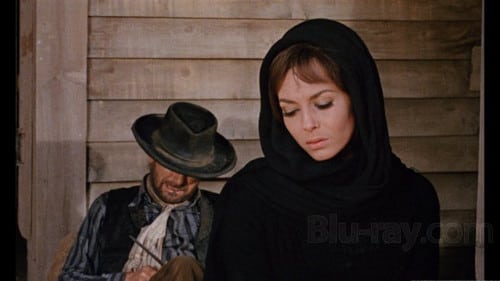
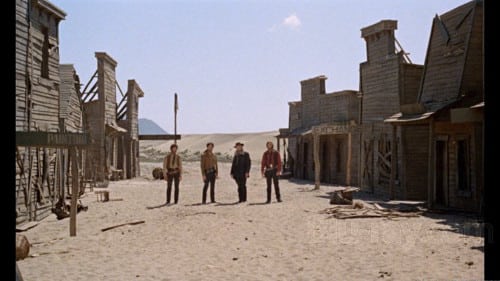

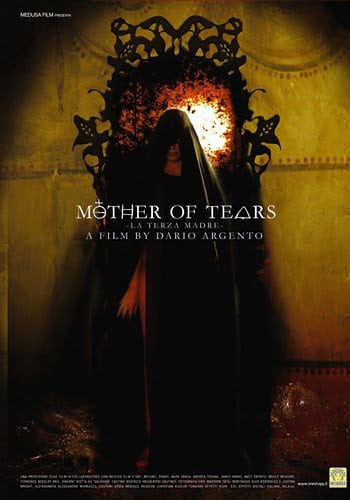
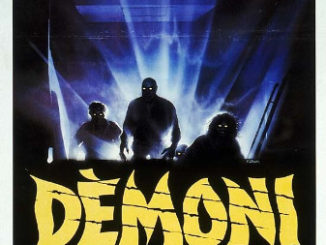
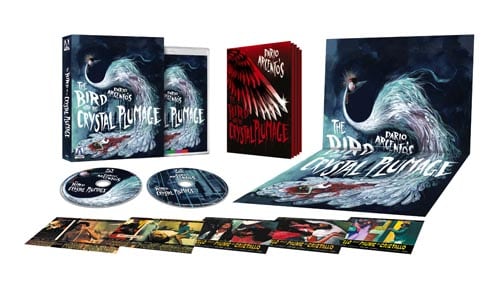
Be the first to comment